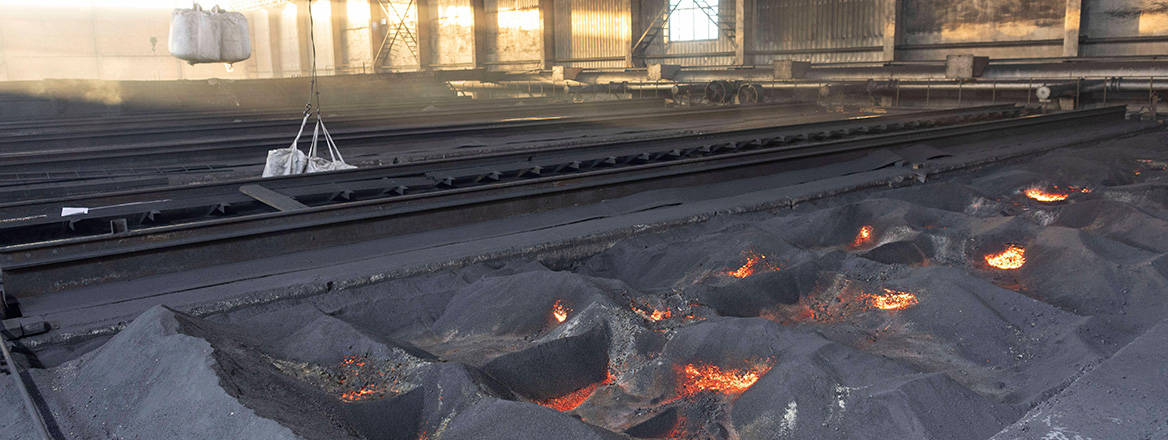New Energy Supply Chains: Is the UK at Risk from Chinese Dominance?
Russia’s invasion of Ukraine has focused attention on energy supply chains and contributed to growing unease in the West about the fact that supply chains for the commodities necessary for the global energy transition are highly concentrated in China (or are under Chinese control).
Concerns range from cyber security through to security of energy supply and economic security. The disruption to energy supply chains caused by Russia’s invasion of Ukraine was felt mainly in terms of the physical supply of gas to Europe and the impact this had on the global market. In this context, this paper considers the implications of threats to the physical supply of some of the critical materials and products that the UK requires for its energy transition.
China has benefited from being an early mover in the processing of many minerals used in net zero technologies, as well as in the production of intermediate goods and, more recently, final goods. In some elements of the supply chain China has a near monopoly (80–100% market share): the rare earths used to manufacture the permanent magnets used in wind turbines and electric vehicles (EVs) are just one example; other examples are connected to the production of battery anodes, high-quality spherical graphite, and the processing of manganese (also used in batteries). In the production of solar photovoltaic modules, meanwhile, China has a near monopoly on the production of polysilicon, silicon wafers and silicon cells. Added to this are very high concentrations (60–80% market share) in many other elements of these supply chains.
In light of this dominance, this paper considers what risks China’s position in these supply chains poses to the physical supply of materials, components and final goods in the battery and EV, solar, wind and electricity grid supply chains, and whether China could deliberately leverage its position to impose costs on the UK. These risks are assessed according to whether they could affect the UK solely, a group of countries, or the entire market. The paper argues that risks to the UK specifically are currently limited by low levels of manufacturing of these technologies in the UK: because the UK typically imports final goods – where Chinese dominance is less pronounced – its direct dependence on Chinese suppliers is limited. However, the UK might still be an attractive target for largely symbolic measures intended to send political messages.
The targeting of country groupings (such as NATO or the EU) by sanctions and counter-sanctions amid geopolitical tensions is potentially more dangerous for the UK. Market concentration in China is likely to persist for the foreseeable future, and alternative supply chains are unlikely to be sufficient to meet the demands of multiple countries. At the same time, protectionist industrial policies in the EU and the US may complicate future access to supply chains (which could become less dependent on China), while markets currently lack transparency and, in some cases, scale.
The biggest risk for the UK is shortages of critical minerals. Shortages are widely forecast, and China’s control of mineral processing and refining means it would play a central role in the allocation of scarce goods. Leveraging supply chains for political ends has historically been more effective in tight markets – the 1970s oil embargoes came during periods of tight supply – but China is more likely to allocate available supplies according to its own national economic interest. During the Covid-19 pandemic, high-volume contracts with Chinese companies were more likely to be honoured, and if this pattern were to be replicated it could mean that decisions about allocation were passed to companies, which would decide which of their domestic and international operations received scarce materials. However, China’s ban on Australian coal shows that where a security threat is perceived, Beijing will take action, even if it will cause damage to the Chinese economy.
There are also risks in terms of defence and international relations. Access to technology for the military is likely to be similar to that for the civilian economy for the time being, with net zero technologies currently most likely to be used for military logistics or for housing/bases. The most immediate risks relate to the secure operation of technologies, but these tend to be associated with cyber risks, which are not covered in this paper. The increased importance of critical minerals as commodities may change geopolitical dynamics and in some cases result in domestic and regional instability, influencing where the military is deployed. In the longer term, there are questions about whether China’s industrial power and growing technological advantage in net zero will be leveraged to create advantages for its own military capability.
Finally, China’s role as the paramount – and in some cases only – investor in and purchaser of mineral ores will clearly be significant for its global influence. China’s role in producer countries, as well as its trading practices, will be important in shaping the character of the global market, with long-term implications for the UK’s defence and security policies.
WRITTEN BY
Dr Michal Meidan
Dr Philip Andrews-Speed
Dan Marks
Research Fellow for Energy Security
Organised Crime and Policing
- Jim McLeanMedia Relations Manager+44 (0)7917 373 069JimMc@rusi.org




